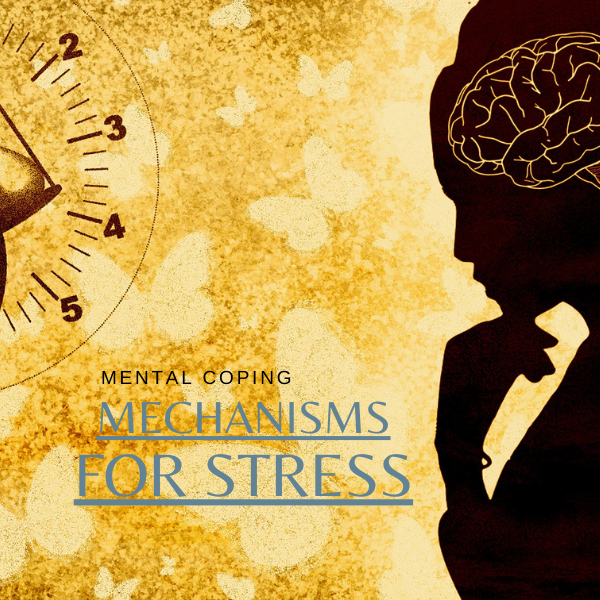How to Overcome Acute Stress: Effective Strategies to Manage Stress and Improve Well-Being
Acute stress is something that we all experience from time to time, whether it’s due to a tight deadline, an unexpected challenge, or an intense situation. While acute stress is a natural response to life’s pressures, it’s important to find ways to overcome it to prevent long-term effects on your health and productivity. In this guide, we’ll discuss the best strategies to manage acute stress and help you regain control.
What is Acute Stress?
Acute stress refers to the short-term stress that occurs in response to a specific event or situation. It’s the body’s immediate reaction to challenges, often accompanied by heightened alertness, faster heart rate, and a surge of energy. Though it’s usually temporary, if not managed well, it can interfere with your daily life and well-being.
Effective Ways to Overcome Acute Stress
If you’re dealing with acute stress, here are some proven strategies that can help you overcome it quickly and regain balance:
1. Practice Deep Breathing Exercises
Breathing exercises are one of the simplest and most effective ways to calm your mind and reduce stress. Deep breathing activates your body’s relaxation response, which helps lower your heart rate and blood pressure, easing feelings of anxiety and tension. To get started, try the 4-7-8 breathing technique:
- Breathe in slowly through your nose for a count of 4.
- Hold your breath for a count of 7.
- Exhale slowly through your mouth for a count of 8.
2. Exercise Regularly
Physical activity is a natural stress reliever. Engaging in regular exercise releases endorphins, which are chemicals in your brain that help reduce stress and elevate your mood. Whether it’s a brisk walk, yoga, or a more intense workout, moving your body can help lower cortisol levels (the stress hormone) and improve your overall sense of well-being.
3. Mindfulness and Meditation
Mindfulness and meditation practices are highly effective in managing acute stress. These techniques involve focusing on the present moment and clearing your mind of distracting thoughts. Research shows that regular mindfulness can reduce stress, improve concentration, and enhance emotional resilience. Try guided meditation apps or simple mindfulness practices like paying attention to your breath for just a few minutes each day.
4. Time Management Strategies
Acute stress often arises when we feel overwhelmed by too many tasks and deadlines. By improving your time management skills, you can reduce stress levels and enhance productivity. Break your tasks into smaller, more manageable steps and prioritize them. Use tools like to-do lists or productivity apps to keep track of your responsibilities and avoid last-minute rushes.
5. Talk to Someone You Trust
Sometimes, simply talking to someone you trust can help you relieve stress and gain perspective on a situation. Whether it’s a friend, family member, or therapist, sharing your thoughts and feelings with others can provide emotional support and help you process your stress.
6. Get Enough Sleep
Sleep is a crucial component of stress management. Lack of sleep can make stress worse and impact your ability to think clearly and handle challenges. Aim for 7-9 hours of sleep each night to give your body and mind the rest they need to recover and rejuvenate. Create a calming bedtime routine to improve your sleep quality and reduce stress.
7. Positive Self-Talk and Reframing
Acute stress can often lead to negative thinking patterns, making the situation feel worse than it actually is. Reframing your thoughts and practicing positive self-talk can help you shift your mindset. Instead of focusing on the negative aspects of the situation, try to see it as an opportunity for growth or challenge. This shift in perspective can help you feel more in control and less stressed.
Tips for Preventing Acute Stress
While it’s not always possible to avoid stress, there are steps you can take to prevent it from becoming overwhelming:
- Set realistic goals and expectations for yourself.
- Practice relaxation techniques regularly, even when you’re not stressed.
- Maintain a healthy lifestyle by eating nutritious foods, staying hydrated, and getting regular exercise.
- Stay connected with others and build a strong support network.
🫳🏻 Conclusion
Acute stress is a natural part of life, but with the right techniques, you can manage it effectively and avoid its negative effects. Whether it’s through relaxation exercises, mindfulness, or improving your time management, there are many ways to reduce stress and enhance your overall well-being. By incorporating these strategies into your daily routine, you can stay calm, focused, and in control when stress arises.
By using these strategies, you’ll not only improve your stress resilience but also take proactive steps to lead a more balanced and fulfilling life.
Don’t be shy to comment bellow 👇🏼



